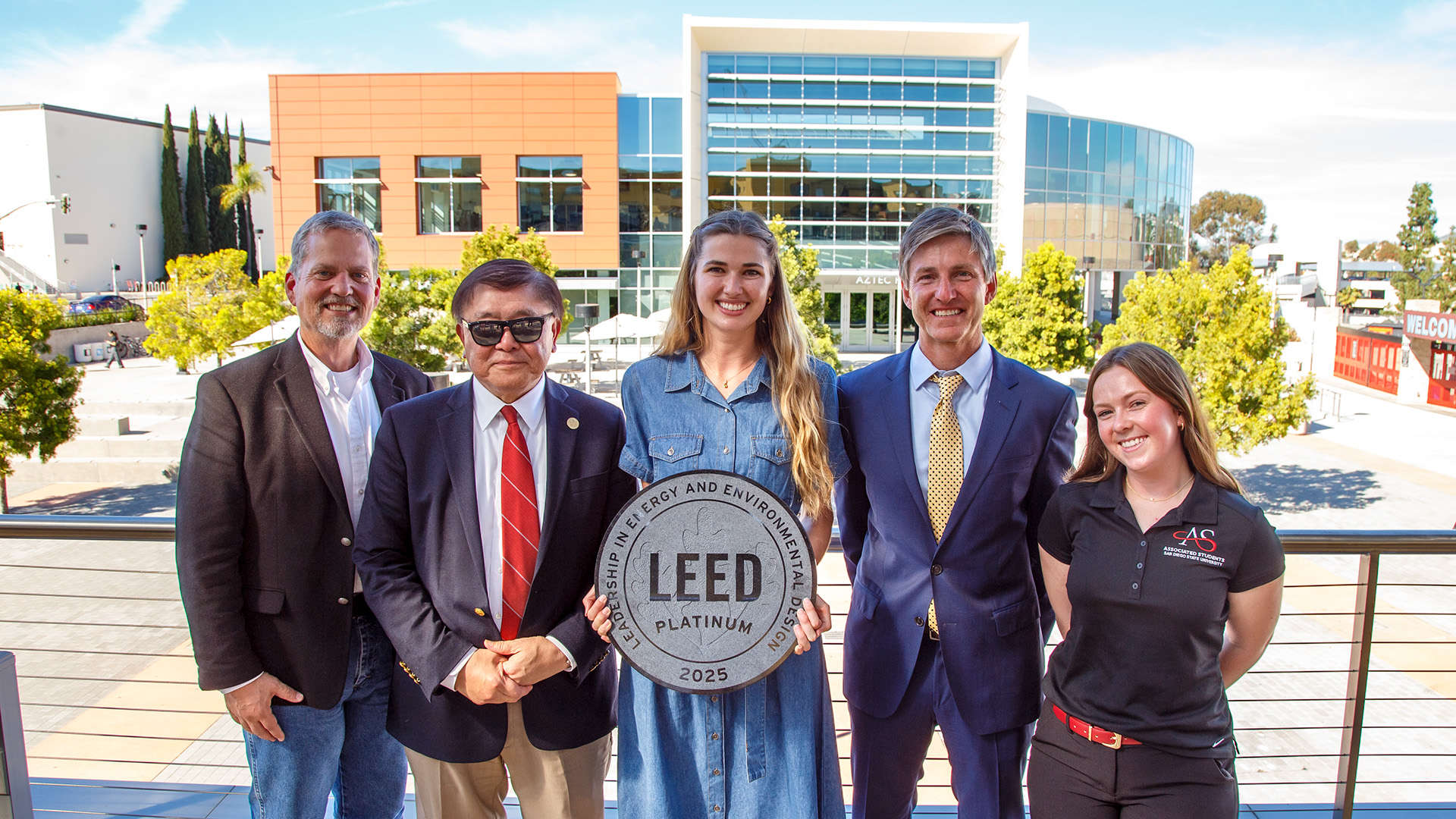Summer Research Gives Students Confidence to Make a Difference
The program teaches skills and insights that don't always come through in a traditional classroom.
Rodolfo Callado, an engineering major, worked on a project that studies the use of power buoys as a way to generate electricity from waves.
“My goal is to contribute to solving the world’s energy crisis,” he said. “Working on my current project has inspired me to work on similar projects in the future and has reinforced my confidence in being able to make a difference.”
Crisila Aban, a senior and biology major, worked on research that gauges the impact of commercial fishing on California Spiny Lobsters, and said SURP allowed her to “gain valuable experiences and skills that I can use in my career as a scientist.”
Confidence and experience is exactly what SURP aims to provide students.
The program connects student researchers with faculty mentors and pays them to work on a summer research project. The goal is twofold: give students real-world field experience in research, scholarship and creative activities and encourage faculty mentorship of budding researchers.
This summer, SDSU funded more than 66 student researchers. Each student-mentor team receives a $3,000 stipend.
Interim Director for Undergraduate Research Natalie Mladenov (who is filling in for engineering professor Alicia Kinoshita, who holds the title permanently) spoke with SDSU NewsCenter about the importance of high-impact practices like undergraduate research.
A lot of students aren’t familiar with research before coming to college. How would you explain what undergraduate research is like, and what kind of activities can be involved?
When we talk about undergraduate research at SDSU, we are really talking about research and creative works outside of the classroom. This includes experiences as diverse as cataloging historical costumes and fashion pieces or tracking the behavior of lobsters.
By participating in research, undergraduate students are gaining hands-on and often cutting-edge experiences that are just not available in the traditional classroom. Students have the opportunity to present their research at SDSU’s Student Research Symposium, which is a great venue to hone presentation skills and network with other students and faculty.
How do research experiences like SURP prepare students for their careers?
Through research, students acquire new skills, new vocabulary and new insights. These undoubtedly set them apart when they interview for their first job or write personal statements for graduate school. In addition to that enriching exposure, many SURP students often lead their own projects.
There is a certain independence and self-efficacy that is gained from having these empowering experiences, and prospective employers will see that. Research mentors also can be a valuable resource. They often provide career guidance, write letters of recommendation, and act as a sounding board for other prospective opportunities.
Any advice for students considering research?
I suggest getting involved in research early. Don’t wait!
Research experiences can help you discover what you don’t want to do just as much as they can uncover your passion. There is evidence that gaining research experiences early is a real motivator and has positive impacts on academic success. Also, look into funding opportunities for undergraduate research. There are paid and volunteer positions for undergraduate research, including programs to increase inclusivity of underrepresented students. You can get a good start on this by visiting the “Funding Your Work” page on the Undergraduate Research website.
What are some ways to get involved with research at SDSU?
There are many ways to get involved with research. SDSU’s Undergraduate Research website is a great place to start. We have many resources for students interested in research, including tips for finding a mentor, links to funding opportunities that support undergraduate research on campus, and information about our SURP match program that matches students to mentors for summer research experiences.
A very effective way to find a research mentor is to straight up talk to or email faculty members you know who are involved in research and creative activities.



